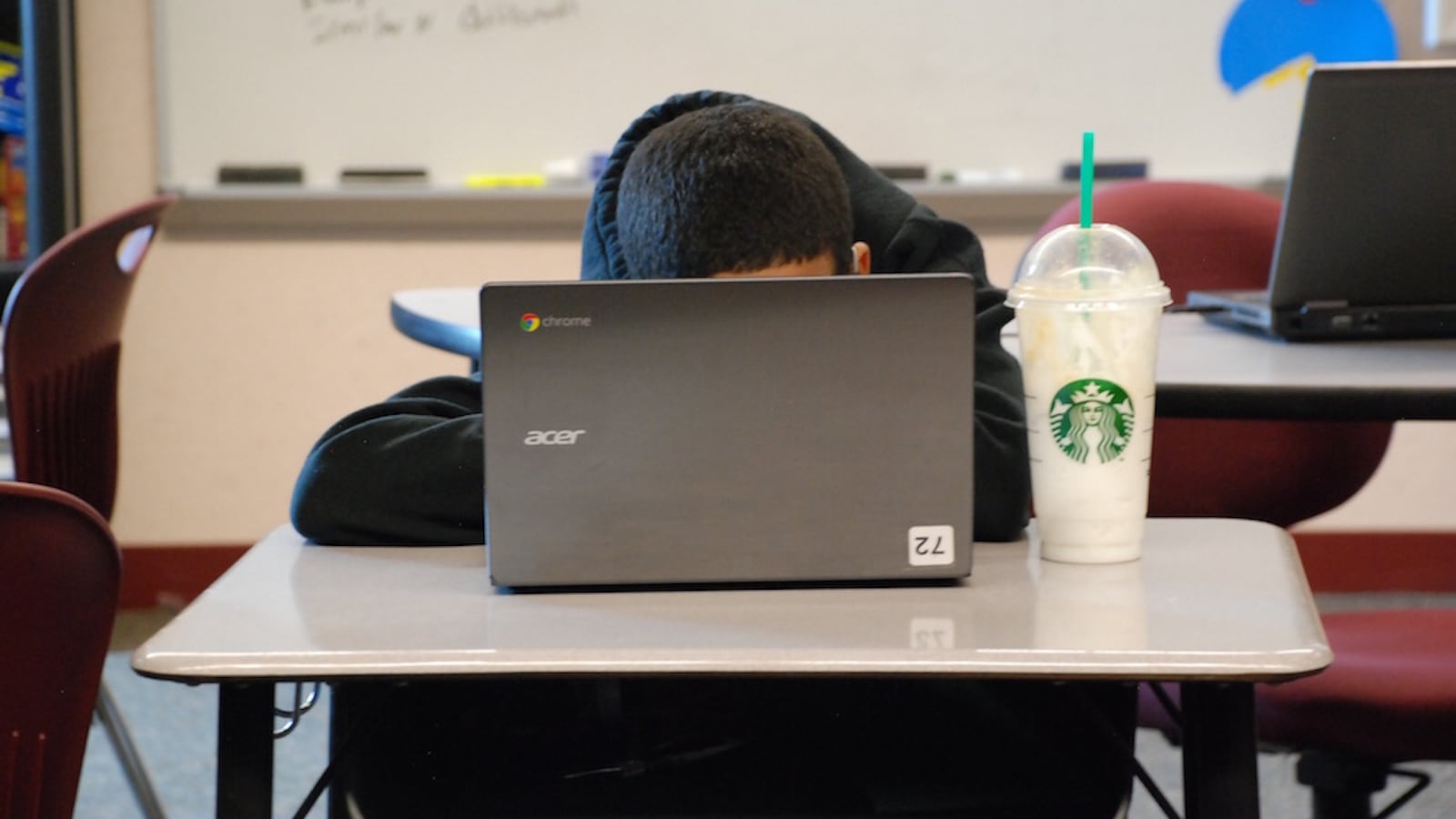A bill that would prohibit virtual charters from shuffling students between schools cleared a legislative hurdle Wednesday. If signed into law, it could prevent online schools from bypassing state efforts to hold them accountable.
Sen. Jeff Raatz, the author of the bill, which passed out of a state Senate committee, said the idea came from the Indiana Department of Education, which noticed two virtual charter schools in the same network were moving around large groups of students.
The state’s three virtual charter school operators all have multiple schools in their network. Raatz did not name the schools in question and the education department did not confirm them either. But Chalkbeat reported in November that state data showed that since 2017, thousands of students have transferred from Indiana Virtual School to its sister school, Indiana Virtual Pathways Academy.
Raatz said the transfers he was made aware of came “at an opportune time to save [the school’s] letter grade.” Under his amended bill, virtual charter networks would not be allowed to transfer students between schools during the same school year.
Enrollment swings at Indiana Virtual Pathways Academy meant the school did not get a state grade for 2018 because it did not test enough students who had been enrolled long enough. So despite being responsible for more than 6,000 students last year, the state is missing a key metric designed to hold the school accountable.
The A-F grades that Indiana hands out factor in student test scores and too few students passing can result in lower grades. If a school receives four consecutive F grades, it can lead to state sanctions. At Indiana Virtual Pathways Academy last year, fewer than 6 percent of students passed both English and math exams.
Raatz’s bill originally included provisions that would have reduced financial incentives for groups that oversee virtual charter schools and imposed some harsher consequences for poor academics. But the amended version that passed out of committee no longer cuts the fees authorizers can collect from the schools they monitor. The bill also struck language that would have prohibited virtual schools from enrolling new students — thereby stopping their funding stream — after four consecutive years of failing grades from the state.
Both clauses were part of recommendations from the Indiana State Board of Education, which late last year wrapped up a months-long review of low-performing virtual schools. These provisions would have addressed board members’ concerns about how much money some authorizers were bringing in and how they were spending it, as well as virtual schools’ rapid growth.
A 2017 Chalkbeat investigation of Indiana Virtual School revealed widespread low performance and questionable business and spending practices, setting off a statewide conversation about how the schools are serving students and what regulations need to be added.
Sen. Eddie Melton, a Merrillville Democrat who has proposed accountability legislation aimed at virtual charters that is unlikely to advance, said he wishes Raatz’s bill accomplished more.
“I don’t feel like we’re adequately addressing, holistically, the issue that virtual charter schools are not excelling,” Melton said. “I hope we can look deeper into more accountability.”
Like its counterpart in the House, which passed a final vote to advance to the second half of the legislative session last week, the Senate bill requires students at virtual charters and district-run online schools to complete an orientation before enrolling. The bills also change state law to prohibit school districts from being virtual charter school authorizers.
Raatz said the bill was scaled back because lawmakers were worried the original draft would hamper the schools.
“We need to wrap our arms around the the virtual space without stopping it from happening,” he said. “Maybe we aren’t coming down as hard as some would like, but the day’s not over yet.”

